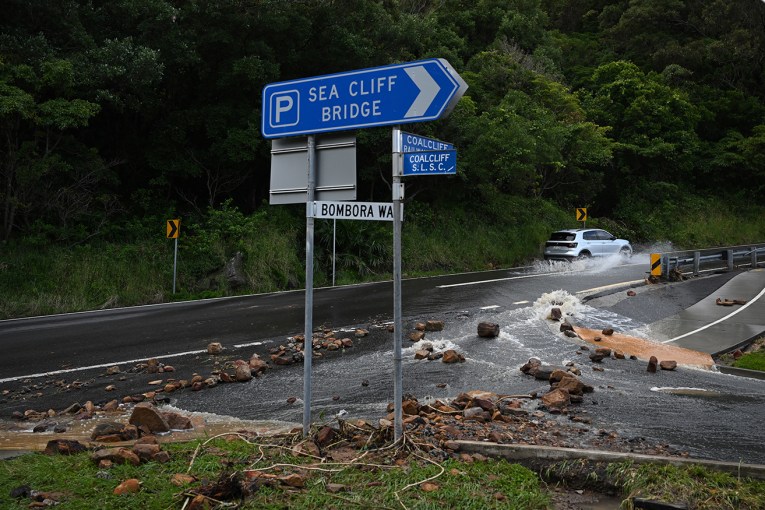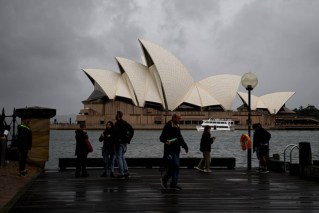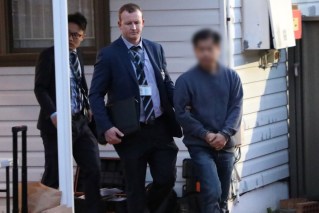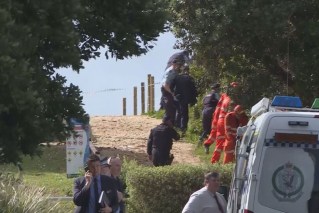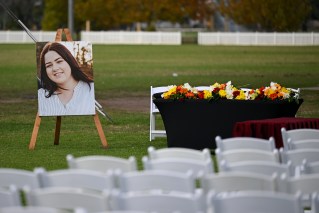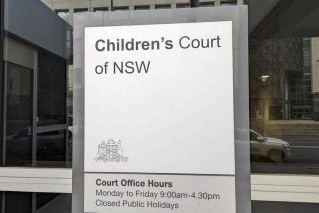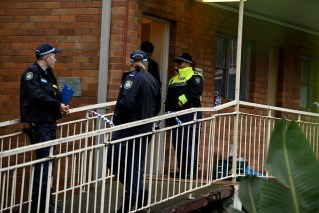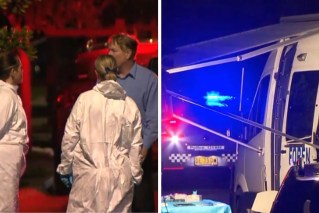Sydney siege inquest: prosecutors ‘not at fault’
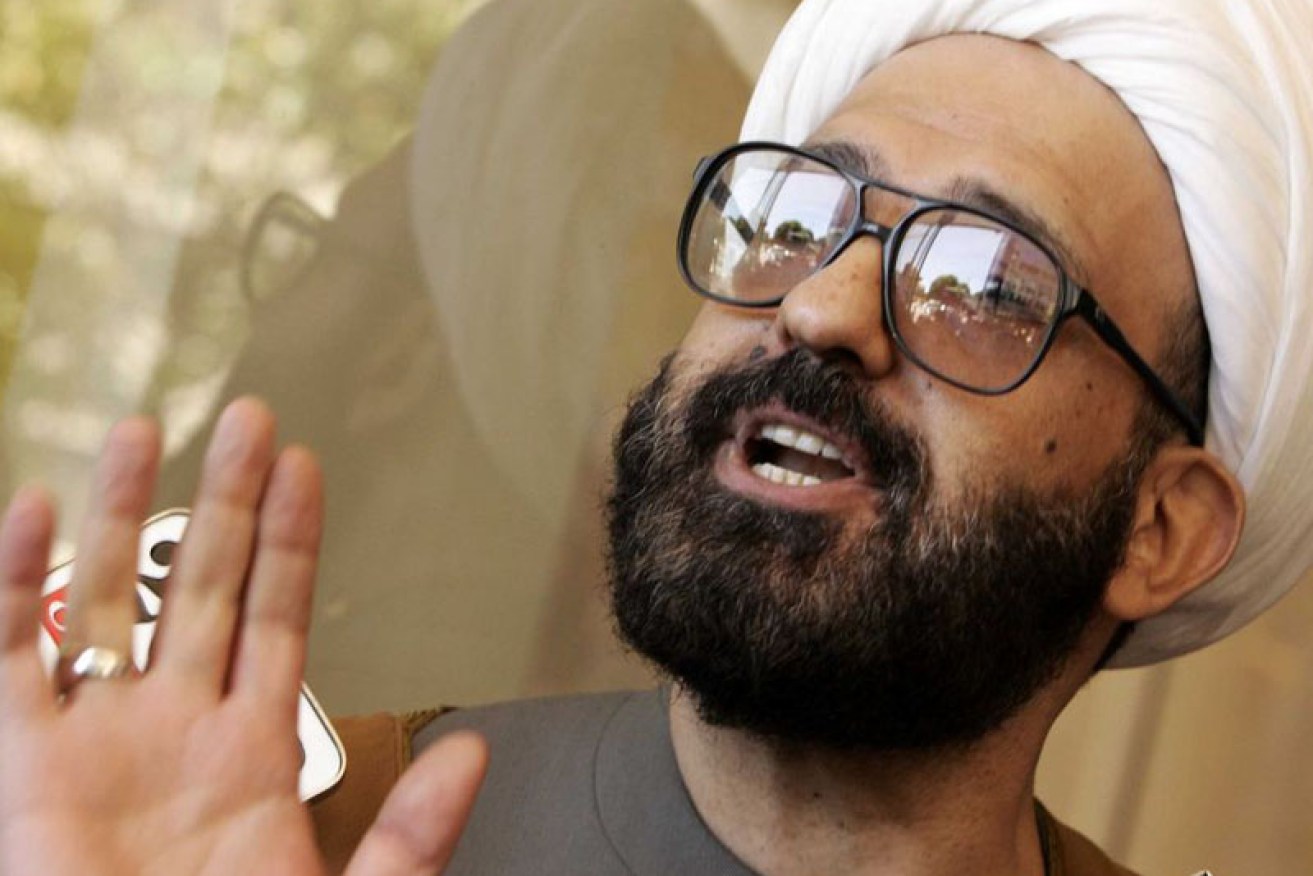
Man Haron Monis was on bail at the time of the Lindt Cafe attack. Photo: AAP
The New South Wales coroner has dismissed suggestions prosecutors were at fault when Lindt Cafe gunman Man Haron Monis was granted bail over unrelated charges, saying those criticisms are ill-informed, unfounded and unfair.
The inquest in Sydney, which resumed on Monday morning, has previously heard the Iranian-born asylum seeker took staff and customers at the Lindt Cafe in Martin Place hostage on December 15, 2014, telling them “this is an attack, I have a bomb”.
The siege ended about 17 hours later when Monis forced cafe manager Tori Johnson, 34, to kneel, before shooting him in the head with a sawn-off shotgun.
• Siege families seek answers
• Witness told Monis wasn’t a threat: inquest
• Basketballer denied bail over Lindt Cafe vandalism
Officers from the Police Tactical Operations Unit stormed the cafe and shot and killed Monis.
Hostage Katrina Dawson, 38, was also killed when she was struck by six fragments of a police bullet or bullets, which ricocheted from the cafe’s marble walls into her body.
In the years leading up to the siege, Monis was bailed on several occasions for 43 charges of sexual assault, and being an accessory to the murder of his ex-wife.

A hostage runs to a police officers for safety escaping from the cafe under siege. Photo: AAP
In his opening address, state coroner Michael Barnes said the second, two-week segment of the inquest would investigate why Monis was a free man at the time of the attack.
“Whatever the outcome of that review [of bail conditions], it is important to acknowledge that it is being given with the benefit of hindsight,” he said.
“None of those involved in the bail applications could have been expected to foresee something as terrible as the Lindt Cafe siege.”
Counsel assisting the inquiry, Jeremy Gormly, said the issue of Monis’s bail conditions may seem a simple one.
“However straight forward it may seem, it simply isn’t,” he told the inquest in his opening remarks.
“The bail story of Mr Monis is long and complex. No one can predict what a person charged with an offence will do on bail, but good attempts must be made.”
Inquest ‘a court of fact, not blame’
During 2010, whilst on bail for sending offensive letters to families of Australian soldiers, Mr Monis appears to have committed three acts of sexual assault, “although this was not known by authorities at the time”, Mr Gormly said.
“Had it been known and brought to the attention of the court, the precise outcome for bail at any particular stage is difficult to assess, but on any view it would have been relevant,” he said.
He noted that the “flow of information” between state and federal authorities was an issue to be considered.
Mr Gormly said that, in 2014, concerns were raised that a new Bail Act in New South Wales was not strong enough.
An amended act took effect on January 28, 2015 – six weeks after the siege.

Escaped hostages run with their hands up from the Lindt Cafe during the siege. Photo: Getty
Mr Gormly said while bail conditions do and probably always will create controversy, it was important to remember who was ultimately responsible for the attack.
“This is a court of fact, not blame,” he said.
“We ought not lose sight of the fact that it was Mr Monis who decided to enter the Lindt Cafe with a hidden gun and stage the siege.”
Siege not terrorism but ‘more to do with mental health’
Monis’s access to guns and his position in the community have also come in for examination.
The inquest heard Monis’s 1950s-era shotgun, which he acquired shortly before the siege, was not handed in during the federal buyback scheme in 1996.
The gun was significantly modified, Mr Gormly said, though he added that it was clear the siege was a “poorly prepared exercise”.
Counsel assisting Sophie Callan said that according to the Grand Mufti of Australia, the country’s most senior Islamic official, Monis was not well known in the local Sunni community.
Monis had claimed a relationship to Islamic State, Ms Callan said, but had not made contact with the extremist group, according to her evidence.
She also said several experts did not consider the siege an act of terrorism, but rather “more to do with mental health”.
The inquest was also told police had taken 1,000 statements and viewed more than 1,000 hours of CCTV footage as part of their investigation, and that portions of the hearing would be conducted behind closed doors, due to the sensitive nature of the evidence.
